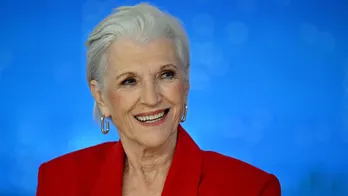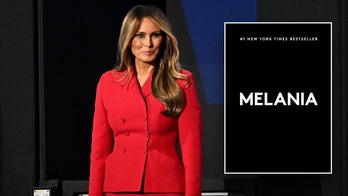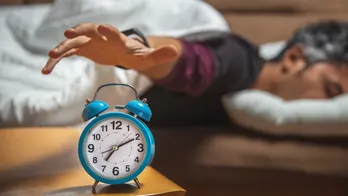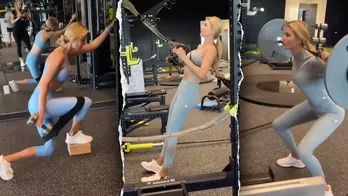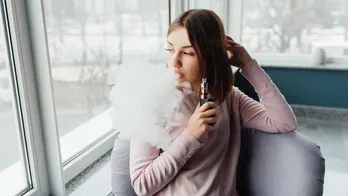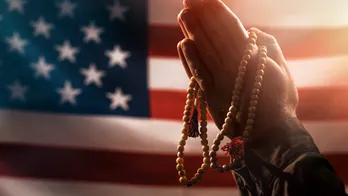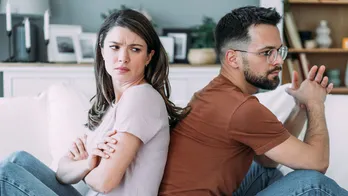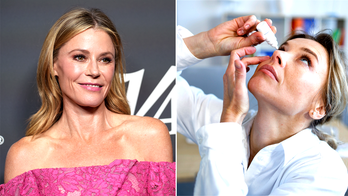Dear Life Kit: My husband is living under COVID lockdown. I'm ready to move on
Need some really good advice? Look no further than Dear Life Kit. In each episode, we pose one of your most pressing questions to an expert. This question was answered by Jessica Malaty Rivera, an infectious disease epidemiologist and science communicator. This conversation has been edited for length and clarity.
Dear Life Kit,
While the world has moved on from COVID, my spouse insists on a family life in near lockdown. None of us are high risk, but he's concerned about the chance of getting long COVID and the unknown effects of repeat infections.
We don't go to restaurants or fly. My young kids have no group extracurriculars, they don't go into grocery stores, to libraries or to birthday parties. They're only at school (after three years of homeschooling) because we had no other options for childcare.
Since my spouse has a long commute to work, it's me who ends work everyday at 1:30 p.m. to do pick-ups so that our kids don't have additional exposure in aftercare. We can't hire a babysitter because of his COVID concerns. My spouse is looking for remote jobs so that he can quit his in-person job, pull the kids out of school and oversee their homeschooling indefinitely.
I recognize the validity of his anxiety, but I feel that some health risks are worthwhile: spending time with family, activities that make kids feel integrated in a community of peers so they can become socialized adults and me being engaged in my career.
Everyone around us is moving on, and I'm no longer sure how much precaution is too much. — Lockdown Limbo
So the pandemic is not over. That's a sentence people are probably tired of hearing. COVID is still a disease that's causing too much morbidity and mortality for us to say it has passed. That said, the acuteness is not the same as it was pre-vaccines. And I say that with a lot of comfort, knowing that vaccines have done an incredible job of preventing extreme illness, hospitalization and death for most people who are up-to-date on the vaccines.
Long COVID is still an unknown, and I think that's one of the biggest confounding factors of COVID-19. I have a lot of empathy for this person's spouse and for the letter writer who is ready to reintegrate into society. Humans as a species are not really designed to live in isolation. So after this many years, it can be incredibly traumatizing, isolating and burdensome, especially with children at home.
Risk is one of the most difficult topics to discuss and educate on in public health because risk perception is influenced by people's internal biases — by their communities, their histories, their traumas and their experiences. I often preface the way that I discuss my risk tolerance in the context of where I live, the ages of my children, our vaccination status and our medical history. All those things inform how I make those assessments.
Knowing that these kids have been in school and have been COVID-free or relatively OK for a while, they can probably tack on an extra extracurricular activity, keeping in mind degrees of relative risk — meaning try an outdoor activity before an indoor activity. Maybe it's extracurricular sports, maybe it's going to play dates in the park. Baby steps.
[I would say that Lockdown Limbo can introduce these ideas to their spouse] in the context of making sure the kids are being socialized beyond school. We have data to show that it's incredibly helpful for children to have well-rounded experiences with other children in various contexts. It's part of their social and emotional adaptation. So I might say, "Our kids need more engagement with others outside of the context of just school. We should probably start doing some extracurricular activities safely by prioritizing outdoor activities first and see how we go from there."
I don't think that there's anything more disruptive to human life than a pandemic. Moving forward together requires a lot of transparency and a lot of conversation about what's working and what's not working. It requires you to be really honest about the toll that it's taken on your individual life — your mental health, your partnership and your parenting relationships. If we're not really specific about what the trauma of the pandemic has meant to us as individuals, I think we'll exist silently and miserably, and possibly with resentment and bitterness towards people in our lives.
Listen to Jessica Malaty Rivera's full response in the audio at the top of the page or on Apple Podcasts and Spotify.
Have a question for Dear Life Kit? Share it anonymously here.
Dear Life Kit is hosted by Andee Tagle and produced by Beck Harlan and Sylvie Douglis with help from our intern Jamal Michel. Bronson Arcuri is the managing producer and Meghan Keane is the supervising editor. Alicia Zheng produces the Dear Life Kit video series for Instagram.
Love Dear Life Kit? You can catch us on NPR's Instagram in a weekly reel.
Disclaimer: The copyright of this article belongs to the original author. Reposting this article is solely for the purpose of information dissemination and does not constitute any investment advice. If there is any infringement, please contact us immediately. We will make corrections or deletions as necessary. Thank you.
